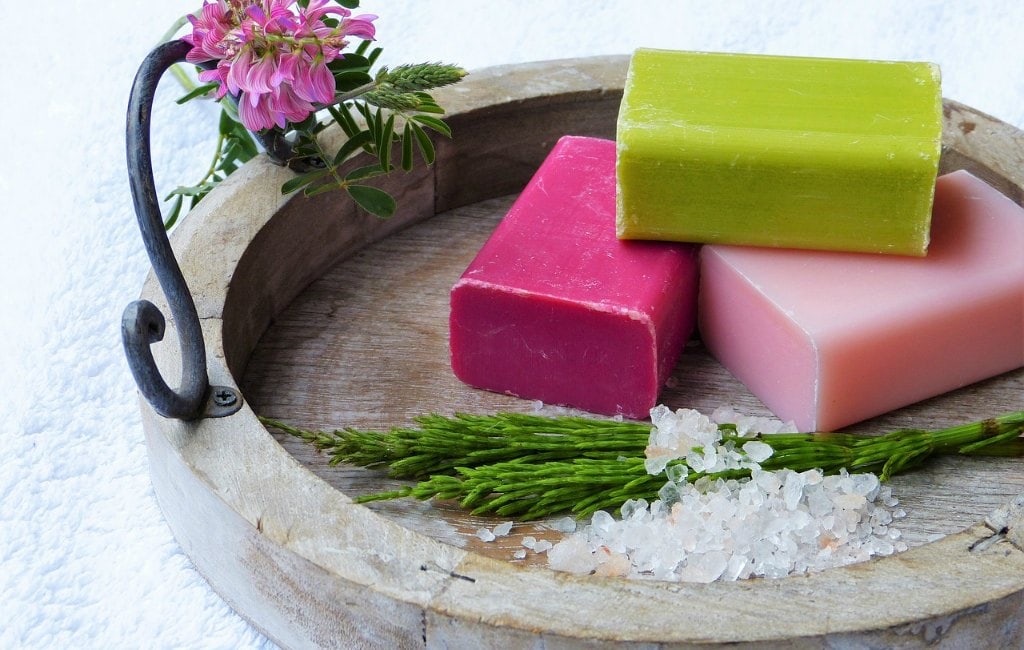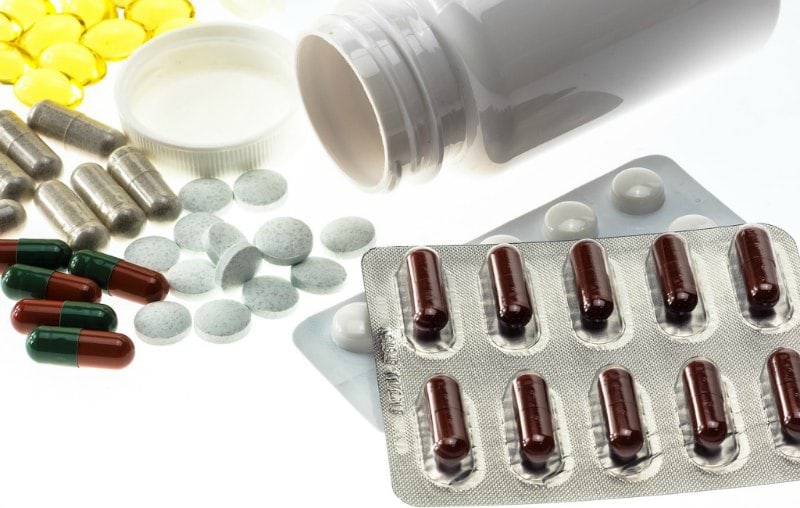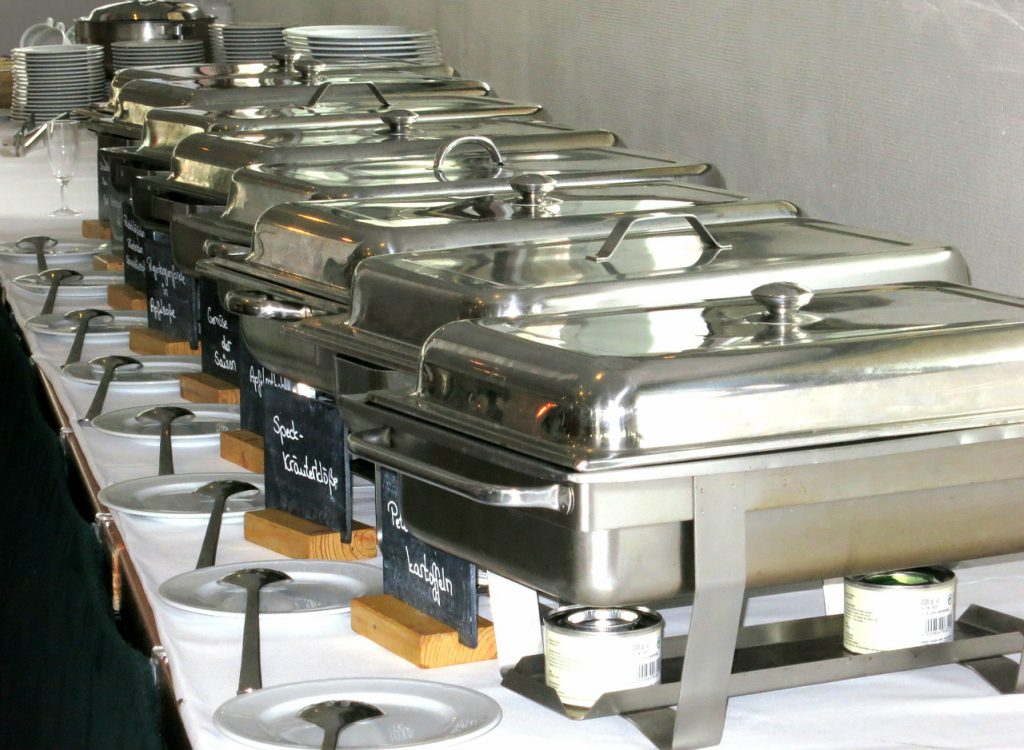Starting a detergent bar or soap making business, especially homemade soaps, with the use of organic ingredients or appealing designs is a lucrative business opportunity. This business, if tapped to its full potential, can guarantee huge profit margins as they can be used as a luxury gifting item or even for residential and commercial uses. Be it a relaxing bubble bath, a soothing foot scrub, or an invigorating facial, the utilities of soaps are plenty.
A popular report has highlighted that in a span of 10 years, till 2021, the contribution of the soap industry to the world’s economy is expected to increase at an annual rate of 0.2%. Also, the GDP is anticipated to increase at an annual rate of 2.3%. Considering the enormous potential and scope in the soap making business, let us discuss the steps that are needed to set up a soap making business successfully.
-
Understanding Niche and Demographics
First and foremost, it is important to understand the tastes, preferences, and demand for soaps in the local market. Regular users prefer effective soaps while considering their shape, packaging, fragrance, color, and size. While the more high-end consumers also consider their ingredients to see if the soap is free from any animal products or do no harm to their skin like rashes before making a purchase. Moreover, a wide range of soaps is available that can be differentiated based on their availability like a soap bar, liquid soaps, and so on. Some of the demographic factors that might need to be taken into account to understand the market are age groups, income levels, gender, etc. of the target audience.
Additionally, there are several areas of the soap making business you can look into. Some of these areas can be:
- Wedding gifting items
- Personalized soaps
- Organic soaps
- Baby soaps
- Novelty soaps
- Male soaps
- Household soaps
- Commercial soaps
-
Budget Needed
The budget is mentioned for a 500m manufacturing unit in a small city of, let say, 10 lakh people for a regular bathing soap. Keep a minimum budget in mind to be Rs. 25lakhs -Rs 35 lakh. This is because of the presence of a large number of competitors in the soap manufacturing industry so initially, the struggle for selling would be too high.
- Manufacturing unit rent: Rs. 1 lakh per month
- Raw Materials- Rs. 3-5 lakh/ month
- Branding: Not fruitful for business if the budget is low
- Employees: 7 factory workers with a salary of Rs. 10,000 per month each; 2 supervisors at 40,000 per month per employee; 1 engineer at Rs. 35,000 per month and 2 salesmen at Rs. 30,000 per month
- Equipment- Rs. 3-4 lakh onwards
- Advertisement- Rs. 50,000 per month
-
Soap Making Formula
Before actually beginning to sell soaps, you must be an expert in manufacturing them. Refining the formula and technique that goes into manufacturing the kind of soap of your preference is a must. While basic soaps require only a few ingredients, a wide range and varieties of soaps can be made by tweaking the formula. Some of the essential bases needed to manufacture soaps are Sodium Hydroxide and Potassium Hydroxide. Acids include plenty of options like Castor oil, coconut oil, olive oil, palm oil, peanut oil, and so on.
One way to make sure that your product stands out from the plenty of options that are available in the market is by experimenting with chemicals, ingredients like scents, colors, and moisturizers until the desired result is achieved. Having the required cleansing power is a pre-requisite into manufacturing any kind of soap. Other factors that need to be considered are the target market: humans, kids, pets; skin types of every consumer, and long-term effects of these soaps on the ones using them. Moreover, your formula needs to be protected and secured at all times as it is the formula that sets you apart from your contemporaries and gives your brand a competitive edge.
-
Raw Materials Required for Soap Manufacturing
To initiate the process of manufacturing soaps and continuing to do so on a consistent scale, the regular raw materials needed would be a steady supply of oils, fats, scents, colors, and wrappers for packaging. One way is to go out and purchase these raw materials yourself from the wholesale market. But doing this can be cost-effective in the long run, it can also be quite time-consuming. Some of the essential raw materials used in the manufacturing of soap are sodium hydroxide (as an alkali) and fats (in the form of olive oils, palm kernel oil, and coconut oil).
So, a convenient option is to procure these raw materials from the suppliers who in turn can ship these materials to you. Select the most ideal and cost-effective supplier of the various raw materials involved to be able to accomplish large-scale production of soaps. Here is a list of essential raw materials that would be required in a soap making business:
- Essential Oils (olive oil, coconut oil or palm kernel oil)
- Premade bases (Sodium Hydroxide and Potassium Hydroxide)
- Nutrients for extra skincare (Honey, Aloe Vera, Seaweed, Oatmeal and so on)
- Natural Preservatives (Grapefruit seed extract, Carrot root oil and so on)
- Scents and colors
- Molds and Containers
- Equipment
- Packaging supplies
-
Soap Making Process
There can be many soap making processes in factories, each one differing from the other in terms of the various factors involved like raw materials, budget, types of equipment involved, and so on. Let us discuss 3 of the major processes involved in the manufacturing of soap in factories:
a). Cold Process
The cold process of making soap involves the mixing of fixed oils, preferable olive, coconut, and palm oils, in fixed proportions with an alkali (like Sodium Hydroxide or Lye). The chemical process involved in this type of manufacturing is called Saponification. Here, the composition of oil changes with the help of the lye to create a bar of soap. The composition of ingredients can be controlled completely in this method.
b). Melt and Pour Process
In the Melt and Pour Process (M&P), a pre-made base is involved that can be used readily, once available. Once that is done, the base is then melted and desired ingredients are added in them. This is a very simple and less time-consuming process owing to the availability of readymade bases.
c). Hot Process
This method is a variation to the cold soap making process in which all the ingredients are taken, added to a pot, and placed over a heat source such as a stove. It is then stirred frequently until the soap undergoes various stages. The excess water is evaporated off and once cooled, the soap is ready to be used.
d). French Mill, or Rebatching Process
An extension to the cold making process, this method involves making cold process soap from scratch, grating it up and placing it over a heat source, like a kettle with a little liquid. The mixture then eventually melts down into a mushy mess and then colorant or fragrance can be added.
-
Business Plan
Once the niche and target market for the soaps have been finalized, it is important to work on a Business Plan. Putting your ideas on paper helps you to keep things sorted and minimizes any sort of deviation from your goal. Detailed strategic planning at an early stage is of utmost importance and for this, even a mentor can be really helpful.
A business plan also helps you get an estimate of finances that would be involved in starting a soap business. Factors like the total fee for incorporating a soap business in your country spent on insurance, business model, projection report, permits and licenses, rent for a manufacturing facility, cost of equipment as well as marketing and branding expenditures all can be easily comprehended with an effective business plan in place.
-
Branding
Branding comes in next as every entrepreneur strives to create products that differentiate them from their competitors. Understanding who you intend to sell your soaps too to decide effective branding strategies. For example, for people who care a lot about animal rights, you might want to create soaps that are free of any animal products. While those who care about healthy living, you might want to manufacture soaps using only all-natural ingredients. Promote your brand on various Art and craft shows, farmers’ markets, home parties and flea markets to gain instant brand awareness.
Also, think of some catchy and unique business names that would be most suited for your soap making business. Eventually, it is your brand and you would want it to be a reflection of your vision and values. Next, work towards getting your brand name embossed on the soap to give it a more personalized feel. Create a unique brand logo that is enticing and appealing to the masses and underlines your core values. Consider, for example, the popular soap brand Lux. The company brands all their products by getting the logo and rose petals (symbolic of the brand) embossed on every soap product. The brand ‘Dove’ has the imprint of the dove bird on every soap product and so on. Special attention to be given to packaging too, keeping in mind your target audience and individual preferences of consumers.
-
Equipment and Machines Required
Soap making business requires a few dedicated tools and equipment that need to be modernized. Additionally, a space to work, be it your kitchen or a full-fledged manufacturing facility is needed to initiate the manufacturing process. Eventually, as your business operations grow, you might need to consider additional equipment but here is a list of some basic equipment needed to start the business:
- A blender
- A microwave
- Molds
- A mixing kettle
- Labelers
- Wrappers
- Heat resistance plastic or stainless steel pitcher with lid
- A big steel or plastic spoon
- Measuring spoons and cups
- Beakers
- Stick blender for saponification
- Rubber spatulas for mixing
- Protective rubber hand gloves and goggles
- Accurate thermometer
Note- If you want machines and raw material then Click Here
-
Waste Disposal of Soap Industry
Especially in the manufacturing of soaps/ detergent bar, a great amount of industrial waste faces an issue of safe disposal. These wastes pose a lot of health hazards to the surrounding ecosystem and also contribute to a high level of pollution.
A Proper arrangement should be made for the disposal of solid waste as well as liquid waste. All bio-medical waste shall be destroyed as per the provisions of the Bio-Medical Waste Rule, 1996. Apart from it, provision should be made for the proper and safe storage of waste material waiting for disposal.
-
Legal and Licenses Involved
Register your business as per the laws of the state your business operates. For example, in India, the first thing to do is to set up a legal entity like LLP, partnership, or a Private Limited Company. Home based business owners usually operate in proprietorship or as a limited liability company (LLC). In the USA, apart from the legalities, a Federal Tax ID is required too along with a seller’s permit. Some of the essential documents you might need to sort out the legalities in your business would be a valid Business License, Non-Disclosure agreement, Insurance Policy, Employment agreement, Operating agreements, and so on.
Get all the legal aspects of your business sorted and if needed, consult an experienced tax professional or an attorney too to seek any kind of legal and financial assistance. In India, the soap making process should conform to the Drugs and Cosmetics Act and Rule, in addition to the Bio-Medical Waste Rule. FDA regulation is a must too to make sure that your products are not adulterated or misbranded. Since your products would need packaging, they must comply with the Fair Packaging and labeling act.
-
Decide Soap Price
Based on your target market and product, you would have to finalize pricing for your soap. For example, luxury soaps would have to be priced higher than the ones meant for daily use. Learn more about your competitors’ prices in your area and then set prices, based on sales tactics.
Prices should not be charged too high or too low. Also, the factors to keep in mind before setting up the prices would be front up costs like transportation, supplies, etc. Compute the cost of one product and then add margins to it, to be able to leave margins on every purchase. Also, consider reducing rates on bulk orders and roll out schemes like “buy 3, get 1 free’ and so on as and when needed.
-
Advertise
To be able to successfully sell soaps, not only is it important to understand your market but also how to reach it most efficiently. Spread the word about your soaps as much as possible but never deviate from targeting your primary market. Some of the most common advertising possibilities can be word of mouth, Social Media, Business Cards, Sales Displays, Online advertisements, and traditional media like TV and Radio ads. Small businesses can also consider banners in the local areas where soaps are to be sold. Additionally, print ads in the local newspapers can be considered too.
Attend local business networking agents. Gain network with other soap manufacturers that can help you in getting great insights into the soap making business. Distribute freebies during your product launch at local shops, boutique stores, or gift shops. Give discounts on your products.
-
Make Sellers Channel
Once you are ready to legally sell your product, the real challenge kicks in. At this stage, all the hard work done till now into setting up your business starts to take shape and is in dire need of getting sustained. Since a soap business is primarily a B2B type of business, not much emphasis needed to be given in selling directly to consumers. Focus on maximizing your B2B channels to the maximum. Salespeople should directly approach retailers and wholesalers to promote their brand. You can also give offers to retailers in the beginning so that they only sell or at least introduce your products to their customers. Offer some perks or discounts to shop owners to improve your sales like a short domestic or an international trip, a year-long free supply of your products, and so on.
Soaps can be easily sold at various markets and nearby events. Traveling outside your local area can increase your potential customer base significantly. Some of the opportunities that you can explore to sell your product are:
- Local co-ops and Natural product stores
- Natural gift stores and boutiques
- Online
- Brick and Mortar store






Hi,
I’m from Kolkata, India. I’m planning to start this business on a very small scale and initially no plans to sell in direct stores or online platforms. It will be sold to local friends/people.
Do I need any license initially? Because I’m using organic materials only, no harmful chemicals in the products.
Please guide me.
Though legally you need registration but initially you can avoid it while validating your idea. Once you find that you have customers for your product then you can go for legal process and papers.
Wish to go for the manufacturing of real good quality body/hand wash and pet soaps. From where can I have the raw materials in Jharkhand (East Singhbhum Districts)? And from where can I have machinery for 100000 units (soaps) production on an average per day?
We can provide you the raw material and machines. I have asked my team to email you. You could even start an online chat to quickly get your answer.
Dear Sir/Madam,
I wish to start various soap manufacturing industries from a minimum budget. I need effective manufacturing and business training prior to starting the manufacturing process. Kindly, suggest to me a good training institute in Delhi and the approximate time and cost for training.